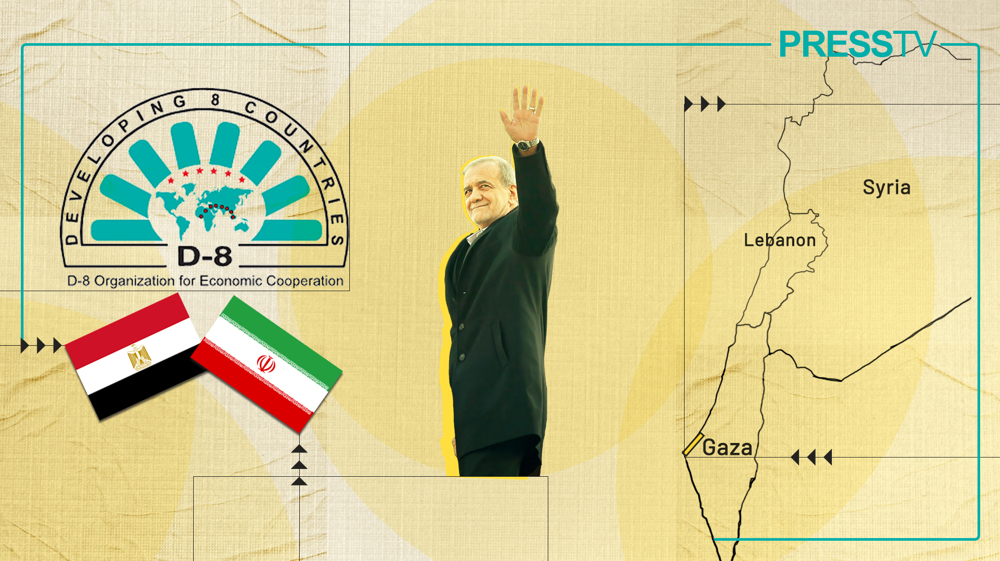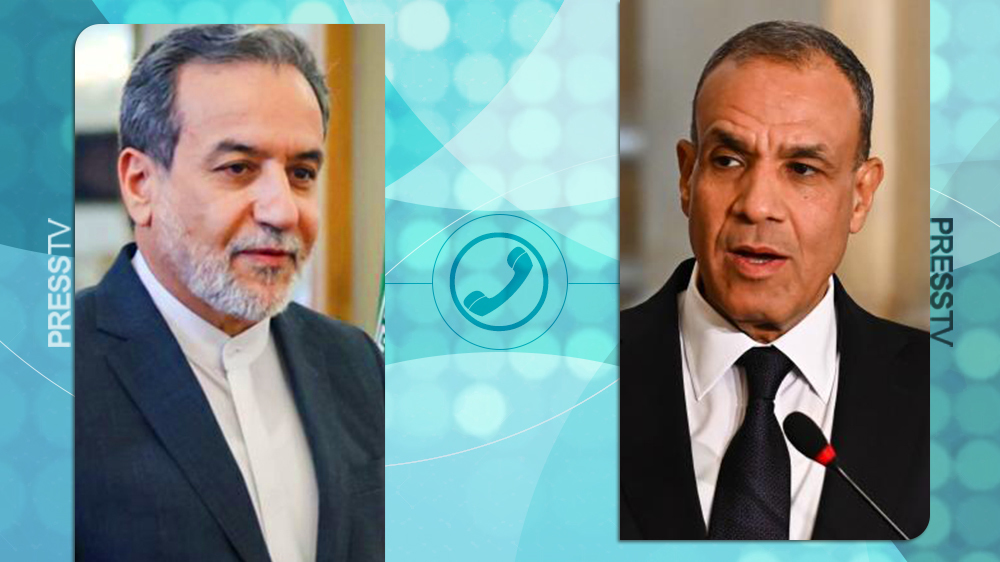Egypt court jails prominent opposition figure expected to run for president
In a likely bid to block his candidacy, an Egyptian court has handed down a jail term to a major opposition leader widely expected to challenge President Abdel Fattah el-Sisi in next year's polls for offending public morals.
During his trial on Monday at the misdemeanor court of Cairo’s Dokki neighborhood, Khaled Ali, who did not appear in the court, was sentenced to three months in prison and ordered to pay 1,000 Egyptian pounds (about $57) on bail for publicly making an indecent finger gesture.
The alleged offense took place back in January outside an Egyptian courthouse in the capital Cairo, where Ali and other attorneys had just won a major case against Sisi’s government, obstructing its efforts to hand over the possession of the country’s two strategic islands in the Red Sea to Saudi Arabia.
Despite the ruling, the Egyptian president approved the transfer of the two islands to the Saudi regime, which finances Cairo with massive supplies of oil.
The Monday’s verdict against the prominent opposition figure can be appealed but if it stands, it will prevent him from running for president.
This is while London-based rights group Amnesty International censured Ali’s sentencing as a “politically-motivated” in a statement issued on Monday.
“Khaled Ali’s politically-motivated conviction today is a clear signal that the Egyptian authorities are intent on eliminating any rival who could stand in the way of President Abdel Fattah el-Sisi’s victory in next year’s elections. It also illustrates the government’s ruthless determination to crush dissent to consolidate its power,” said Amnesty International’s Head of North Africa Campaigns, Najia Bounaim.
The development came after an Egyptian court upheld earlier this month a life sentence issued to the country’s former president Mohamed Morsi on charges of alleged espionage for the Persian Gulf kingdom of Qatar.
In the government’s persisting crackdown on supporters of the outlawed Muslim Brotherhood, the court also upheld three death sentences handed down to the suspects in the case.
Morsi was convicted of espionage for Qatar in 2016 with prosecutors claiming that he had collaborated with secretaries and Muslim Brotherhood figures to leak classified documents to the government in Doha when he was in office. Morsi’s chief of staff at the time, Ahmed Abdel-Ati, is also involved in the case. The two have denied the allegations.
Morsi served as Egypt’s first democratically-elected president after the fall of former dictator Hosni Mubarak in 2011. He was removed from office in a coup led by Sisi, who was the head of the armed forces at the time. Since Morsi’s ouster, tens of thousands of Brotherhood members have been arrested and prosecuted while senior party leaders face death or life sentences.
Dozens detained, several wounded in Israeli raids in West Bank
‘Ethnic cleansing’: Hamas blasts Israeli attacks on Gaza hospital amid intl. silence
Saudi delegation meets HTS leader at presidential palace in Damascus
Relentless Israeli ceasefire violations justify need for self-defense: Lebanese MP
Tel Aviv tells Damascus Israeli forces will remain in occupied territory: Report
Dec. 22: ‘Axis of Resistance’ operations against Israeli occupation
‘Abhorrent’: Oxfam says only 12 trucks delivered aid in North Gaza since Oct.
VIDEO | Leader receives religious eulogists on Hazrat Fatima birth anniv.













 This makes it easy to access the Press TV website
This makes it easy to access the Press TV website